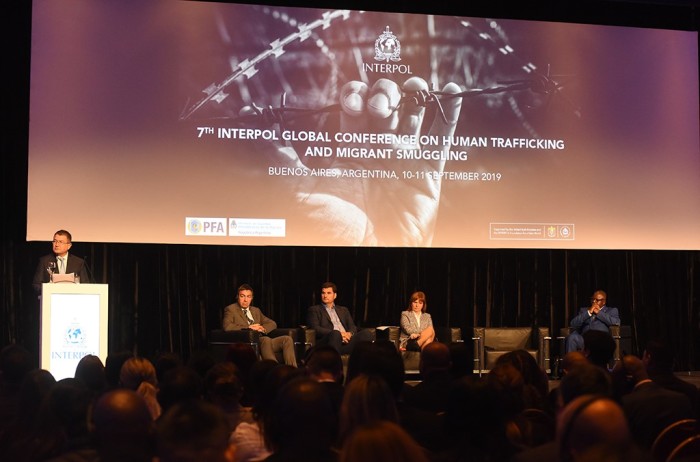WSi News2019-09-12 08:18:03
Cutting the financial lifelines of criminal groups behind human trafficking and people smuggling
Global experts are gathering in Argentina this week to focus on disrupting the ‘business model’ of criminal enterprises behind human trafficking and migrant smuggling.
Participants will exchange on the modus operandi of criminal groups who see victims as a product to be bought, moved and sold for financial gain. This includes an end-to-end look at the logistics of trafficking and smuggling, such as recruitment, money flows, international transport, and various forms of exploitation.
With particular emphasis on information sharing, technology and cross-sector cooperation, the 7th INTERPOL Global Conference on Human Trafficking and Migrant Smuggling has attracted a record 750 participants from 97 countries representing law enforcement, the public and private sectors, non-governmental and international organizations.
The two-day (10 and 11 September) event is being held in cooperation with Argentina’s Federal Police and Ministry of Security.
In her opening remarks, Patricia Bullrich, Argentina’s Minister of Security, described human trafficking and migrant smuggling as “the strong over the weak – those who exploit the vulnerability for their own profit.”
“It is important that we understand the essence of the crime, not only to fight the offenders, but also to develop our ability to return freedom and peace of mind to all those who have suffered as victims,” she said.
Néstor Roncaglia, Head of the Argentine Federal Police and INTERPOL Vice President for the Americas, stated that organized crime groups were constantly innovating and reinventing themselves. “All of us must be ready to fight this common enemy together,” he said.
The opening ceremony was held in the presence of Eugenio Burzaco, Argentina’s Secretary of Security, and Destino Pedro, INTERPOL Executive Committee Delegate for Africa.
Paul Stanfield, INTERPOL Director, Organized and Emerging Crime, outlined how disrupting the flows of money for criminal groups is a key pillar of the Organization’s strategy against human trafficking and migrant smuggling. He encouraged the use of INTERPOL’s policing capabilities, such as Notices and I-24/7, its secure communications network, to share sensitive case information, including financial and online activities.
“Alerting law enforcement across INTERPOL’s global membership focuses our collective efforts on what matters most: actionable intelligence in the field,” said Mr Stanfield.
The INTERPOL Human Trafficking Expert Group and INTERPOL Specialized Operational Network on Smuggling will also convene in Buenos Aires this week. These operational groups focus on sharing specific, case-related intelligence on threats, trends, routes and modus operandi, leading to concrete police action such as Operation Andes in November 2018.
The INTERPOL-coordinated operation targeted migrant smuggling networks across the Americas and has so far led to the arrest of 103 suspected people smugglers, the identification of 13 criminal organizations and 30 follow-up investigations.
In 2019, Operations Epervier II and STOP Mauritania further reinforced INTERPOL’s actions on the ground.
For more information contact:
